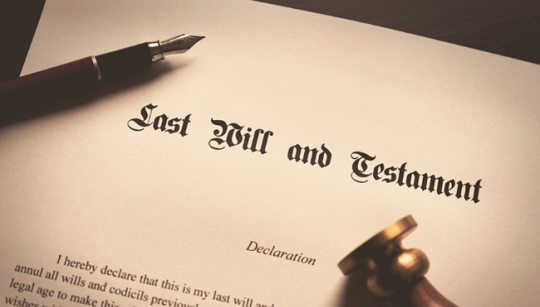I Am The Executor Of A Will. What Do I Need To Do?

If you are named as an executor in a person’s Will you are legally responsible for handling their estate (their money, property and possessions), and for carrying out the instructions they have left in their Will, after they have died.
The deceased may have told you, or someone else, where to find their Will or a search of their paperwork may be required.
Being an executor can take up a considerable amount of time if the estate is large, if there is Inheritance Tax due, and if the instructions as to how the estate is divided are complicated. It would be advisable to seek advice from a solicitor in these cases. However this article will provide some general guidance on what you need to do if you are an executor of a Will.
Overview
Executors of a Will:
- collect all assets (money, property and possessions), belonging to the estate of a person who has died. This may include collecting any money owed to the estate.
- pay any outstanding taxes and debts from the estate.
- distribute the estate to the people who are entitled to it under the terms of the Will.
Executors may also be involved in arranging the funeral, if the will contains instructions for them to do so, and they arrange for the funeral costs to be paid from the estate.
First Priorities
When a person has died it can already be a difficult time, and although there are a number of actions you are required to take as an executor, as a priority any dependants, pets and property should be taken care of.
The Will should set out instructions for the care of any dependants and immediate action may be required to ensure that they are well cared for.
Make sure any property owned by the person who has died is secure as soon as possible after the death and make arrangements for dealing with post.
Next Steps
1. Register the death
You can find out how to register a death here: https://www.gov.uk/register-a-death
Unless a solicitor is dealing with the estate, you may need a copy of the death certificate for each company that holds money, or possessions, that belonged to the deceased, including banks, utility companies etc (these companies are sometimes known as asset holders). Paying for several certified copies of the death certificate now may be less expensive than requesting additional copies later.
You may wish to notify the person’s GP of their death, although an executor is not legally required to. You should stop the payment of salary, pensions and any state benefits; advise the issuers of credit cards, passport, driver’s licence and TV licence of the death.
2. Value the estate
Identify everything in the estate including cash from bank accounts, insurance policy proceeds, pension payments, shares and other investments.
Value all the assets. Specialist valuations may be required to value assets such as the home, shares in a family company, antiques and artwork.
Calculate any debts and liabilities that the deceased may have left, including mortgages, loans, credit cards, etc.
The value of the estate is the value of the cash and assets minus the total of the debts and liabilities.
You can report the value of an estate online at:
www.gov.uk/valuing-estate-of-someone-who-died/tell-hmrc-estate-value
Note: it is important to check that assets are part of the deceased person’s estate, as some jointly held property and insurance payouts made on a person’s death for example, may fall outside the estate. You may wish to get professional advice from a solicitor.
3. Apply for probate
Probate is the process of obtaining a legal document called a grant of representation, which gives executors the legal right to deal with any property, money and possessions. At the time of writing, in England and Wales, probate must be applied for if an estate is worth more than £5,000. There is an application fee of £155 for estates over £5,000, with a £60 fee added if you apply yourself rather than through a solicitor.
4. Deal with finances
Collect all the assets and pay debts and liabilities. Some banks offer an executor’s account where you can transfer any money paid to the estate. This stops estate money getting confused with your personal finances. The grant of probate will be required in order to access any assets.
5. Pay any Inheritance Tax
If Inheritance Tax is due the executor of a will needs to complete inheritance tax forms and pay any inheritance tax due. You can find out more about Inheritance tax here: https://www.gov.uk/inheritance-tax
6. Distribute the estate
The executors of a Will are responsible for distributing the estate to the beneficiaries. A tracing service may be required to find them. Beneficiaries who are bankrupt may not be entitled to receive their inheritance from the estate. You can carry out a search here: www.gov.uk/search-bankruptcy-insolvency-register
7. Complete the process
Draw up estate accounts for the beneficiaries so they can see that everything has been accounted for.
Whilst this process can appear simple, there are many instances in which it would be advisable to have an experienced legal professional work through the process on your behalf. If you are acting as an executor and are unsure what to do or simply have questions about any of the process outlined above, then call us on Bingley 01274 723858, Ilkley 01943 601173 or Bradford 01274 735511.


